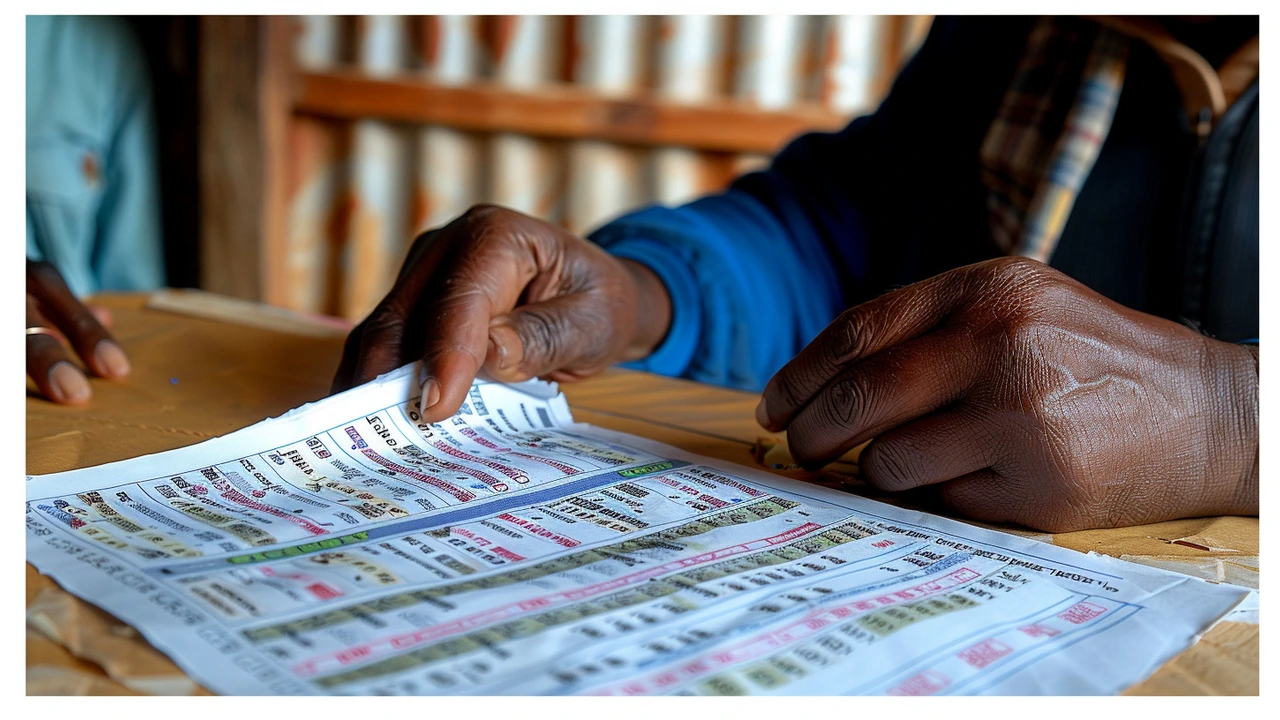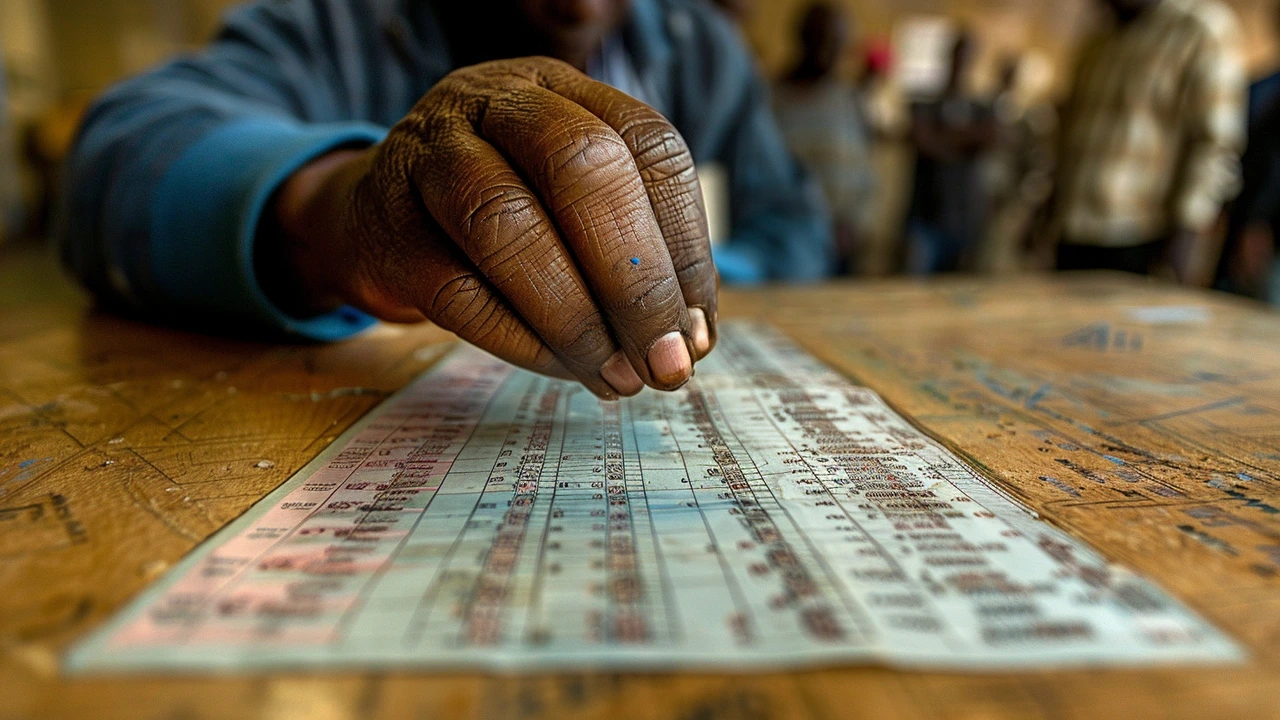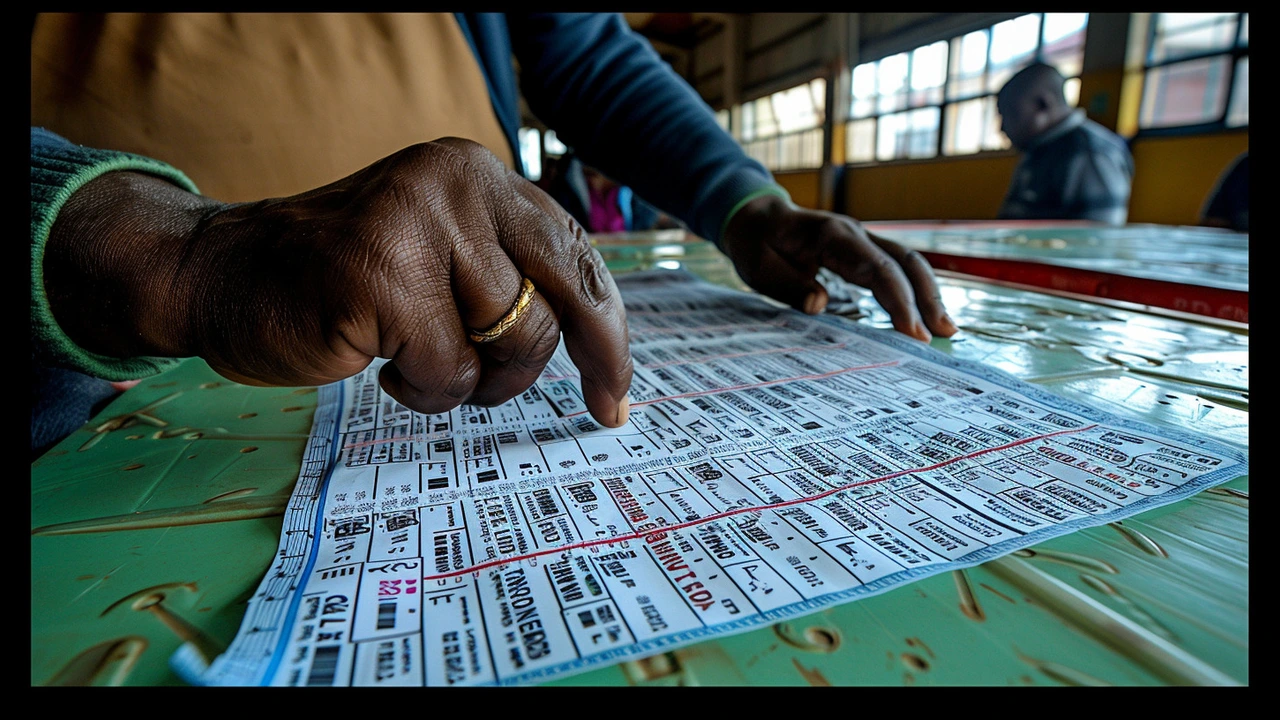Historic South African Election: Will the ANC Retain Its Grip on Power?
As millions of South Africans head to the polls, the nation stands on the cusp of a potentially transformative general election. This election marks a critical juncture for the African National Congress (ANC), which has held power since the end of apartheid and Nelson Mandela's presidency in 1994. However, recent polls and public sentiment suggest a growing disenchantment with the ANC's rule.
South Africa's electorate, estimated at 27.79 million, faces a tough decision. The ruling party, led by President Cyril Ramaphosa, has been at the helm during one of the most challenging periods in the country’s history. High unemployment, rampant corruption, sluggish economic growth, frequent power outages, and violent crime have been significant issues plaguing the nation. These problems have disproportionately affected Black South Africans, who constitute 81% of the population.
A Plea for Change
President Ramaphosa has been keenly aware of the stakes in this election, urging citizens to vote for a future marked by hope and recovery. However, the pervasive discontent among the population could see the ANC lose its majority in the National Assembly for the first time in nearly three decades.
The political landscape is more competitive than ever, with 52 parties vying for representation. Notably, new factions formed by former ANC members, such as Jacob Zuma’s uMkhonto weSizwe Party, are challenging the traditional dominance of the ANC. Zuma, who served as the country's president until 2018 before being ousted amidst scandals, cannot run for parliament due to a ruling from the Constitutional Court.
Opposition's Promise
Meanwhile, the Democratic Alliance (DA), the main opposition party, sees this election as their most promising opportunity yet to alter the balance of power. DA leader John Steenhuisen has been vocal about ending what he describes as the ANC’s mismanagement and has promised to return South Africa to a path of progress and accountability.
There is a palpable sense of urgency and anticipation in the air as voters consider their options. The country's enduring issues have led many South Africans to question whether the ANC can still deliver on its promises of freedom and equality made during the Mandela era. The potential for political realignment looms large as election day approaches.

Turbulent Times Call for Tough Decisions
The socioeconomic challenges confronting South Africa are daunting. It is known as the world’s most unequal country, with disparities in wealth and opportunity creating a landscape of stark contrasts. High unemployment rates are a severe concern, with many young people struggling to find work in an economy that has not grown fast enough to keep pace with the population.
Corruption has further compounded these issues. High-profile scandals involving government officials have eroded public trust in the integrity of the ruling party and state institutions. The resulting cynicism has fed into a broader narrative of disappointment and frustration amongst voters.
The nation also grapples with one of the highest rates of violent crime globally. The fear and insecurity associated with this violence make daily life precarious for many. Power outages, too, have been chronic and disruptive, impacting businesses and ordinary citizens alike.
The Battle for Political Renewal
This election is not just about choosing representatives; it is about envisaging a new direction for the country. Each vote cast symbolizes a desire for change, hope, and stability amidst uncertainty. The intense competition between the 52 parties reflects a vibrant, albeit fractured, political landscape where new ideas and old grievances collide.
Among these, the ANC's historical dominance faces significant tests from various corners. What was once a unifying force against apartheid now finds itself wrestling with its internal divisions and public critique.
The rise of new parties, particularly those formed by former ANC members, indicates that even within its ranks, there is recognition of the need for change. Jacob Zuma’s formation of the uMkhonto weSizwe Party highlights the fracturing of once-solid alliances and the emergence of new political actors ready to capitalize on the ANC’s vulnerabilities.
Steenhuisen and the Democratic Alliance, on the other hand, are banking on their message of reform and transparency. They have positioned themselves as the party capable of rectifying the failures attributed to the ANC and addressing the issues that directly impact South Africans.

Unity and Diversity in the Electorate
South Africa's electorate is diverse and multifaceted, with voters spanning a wide range of socioeconomic backgrounds, ethnicities, and political beliefs. This diversity will play a critical role in determining the election outcome. While dissatisfaction with the ANC is widespread, voter priorities are not monolithic.
Some voters remain loyal to the ANC, deeply connected to the party’s legacy and its role in ending apartheid. Others, particularly younger voters, express a readiness to see new leadership take the reins, driven by an exigent need for job creation, economic development, and social justice.
This generational divide is significant; it underscores the broader challenges that established parties like the ANC face in maintaining relevance in a rapidly changing society. Younger voters, who did not experience apartheid firsthand, are often more critical of the ANC's performance and more open to alternative political solutions.
The Road Ahead
As the ballots are cast, the results of this pivotal election will be watched closely both domestically and internationally. The ANC's ability to navigate this moment, whether they retain a majority or form coalitions, will shape the next chapter in South Africa’s political story.
Regardless of the outcome, this election is a clear indicator of a populace eager for substantive change. The blend of youthful energy, legacy politics, and emerging parties creates a dynamic and unpredictable electoral environment. South Africa’s journey from apartheid to democracy has been a testament to resilience and transformation. The results of this election could either reinforce the status quo or herald a new era of governance and political engagement.
Ultimately, the power rests with the voters. Their collective voice will determine whether the ANC can revive its image and address the pressing challenges facing the nation, or whether a new order will rise to meet the hopes and demands of a restless citizenry. The significance of this election cannot be overstated – it is, in many ways, a referendum on nearly 30 years of ANC rule and a critical juncture for South Africa's future.


Danica Tamura
May 30, 2024 AT 18:14William H
May 30, 2024 AT 18:52Katelyn Tamilio
May 30, 2024 AT 19:36Michael Klamm
May 30, 2024 AT 21:35Shirley Kaufman
May 31, 2024 AT 07:41